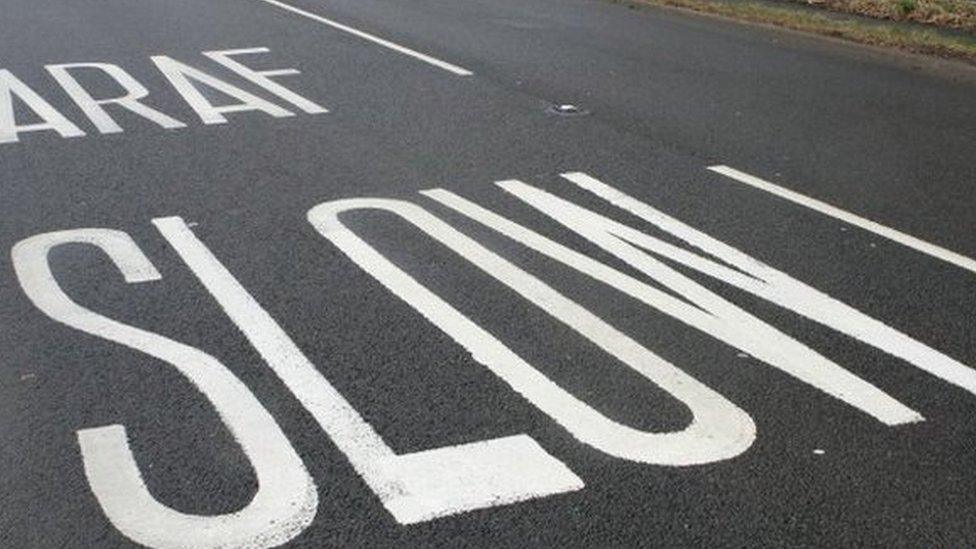Inuit inspired by Welsh language asks Prince Charles for help
- Published
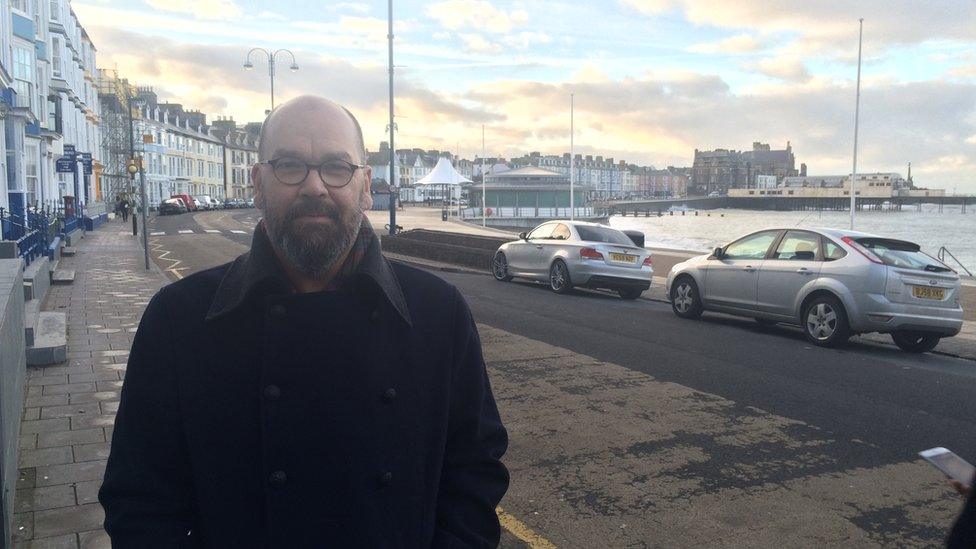
Indigenous rights campaigner Robert Watt will ask Prince Charles to encourage the Canadian government to recognise Inuktitut as an official language
An Inuit man will ask Prince Charles to help get Inuktitut recognised as an official language in Canada - after seeing how Welsh is championed.
There are fewer than 36,000 speakers of Inuktitut in Canada and the numbers are falling, especially among young people.
Robert Watt is one of 17 members of the Inuit community visiting Wales to learn about how Welsh is promoted.
Mr Watt planned to ask the Prince to write to the Canadian government during a royal visit to Carmarthen on Friday.
Inuktitut is one of more than 60 indigenous languages in Canada, but it is not recognised by the government officially.
The group, representing all Canadian Inuit, the Inuit Tapiriit Kanatami, was sent to Wales to learn about the Welsh government's goal of having more than a million Welsh speakers in Wales by 2050.
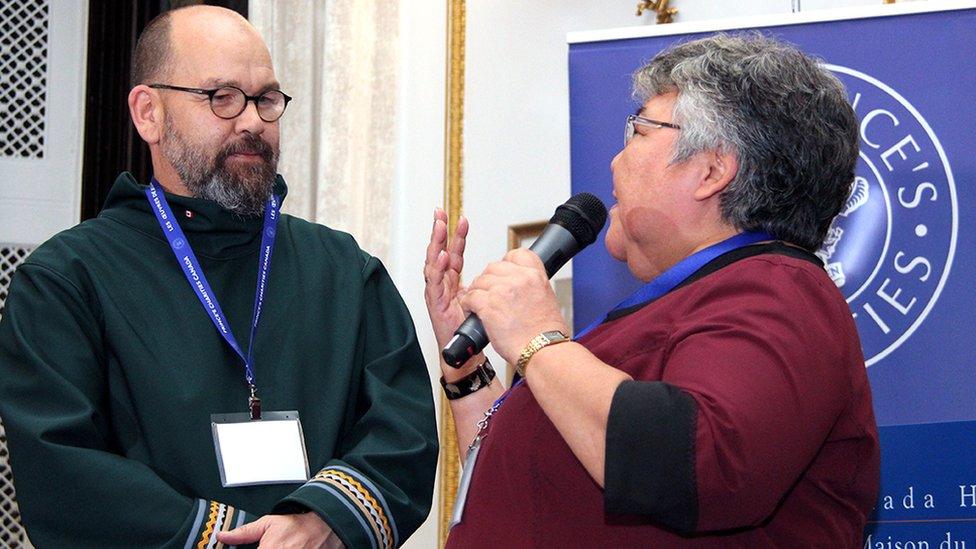
Rights campaigner Mr Watt, who is from an Inuit community in northern Quebec, said he hoped to ask the Prince if he could write a letter endorsing their cause.
"The Welsh language is encouraged and supported through the Welsh Government," he said.
"In Canada only French and English are officially recognised.
"We need to somehow get our governments to recognise our languages so we can get the funding to get on with the work that we need to do."
The group, which is also considering ways to standardise Inuktitut's nine different writing systems, met First Minister Carwyn Jones and Welsh Language commissioner Meri Huws on Thursday.
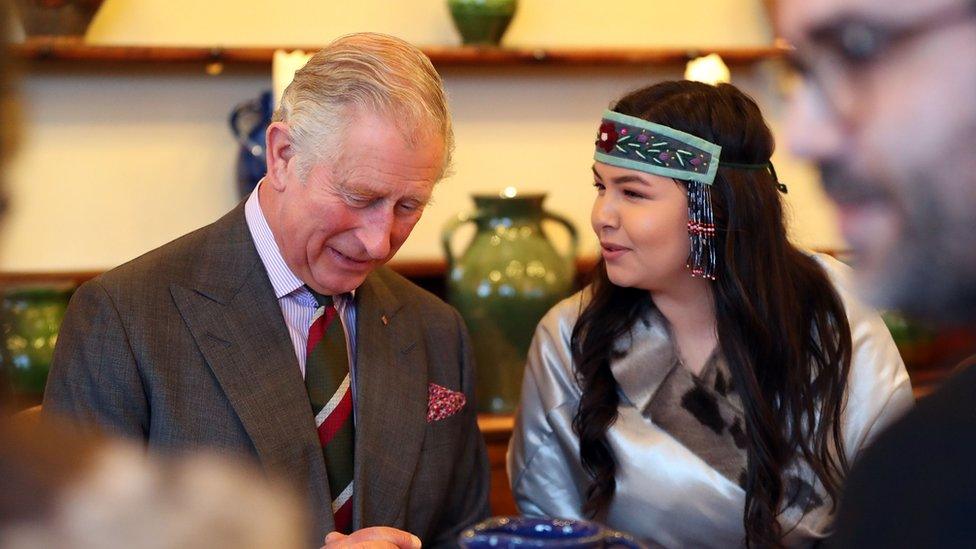
Prince Charles held talks with Maatalii Aneraq-Okalik, a member of the Inuit Tapiriit Kanatami on Friday
Canada's national Inuit language coordinator, Monica Ittusardjuat, said she would like to see their education system changed after seeing how Welsh is taught.
In her community of Igloolik, a hamlet of around 2,000 people living above the Arctic Circle, children are taught in Inuktitut until the age of eight when the curriculum changes to English.
"For Inuktitut, we would like to see an education system like in Wales where children can learn in Welsh from day care right through to university," she said.
"It's takes time to develop the learning materials and so on, but seeing it happen here we know we can get there one day."
Andrew Hawke, editor of the the University of Wales Dictionary of the Welsh Language, said the decline of Inuktitut put the difficulties faced by Welsh in perspective.
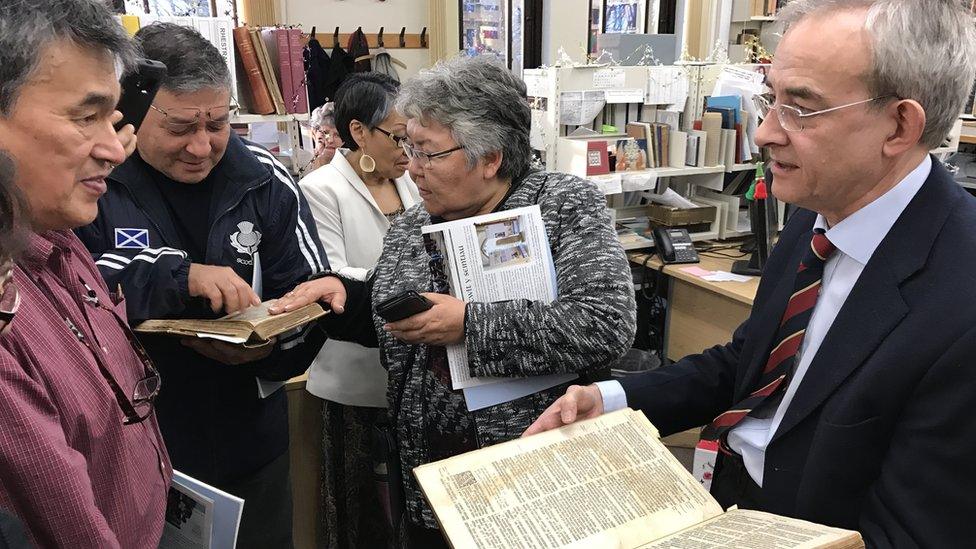
The group meet Andrew Hawke, editor of the the University of Wales Dictionary of the Welsh Language
The 2011 census reported a drop in the number of Welsh speakers from 582,000 in 2001 to 562,000 - about one in five of the population.
Traditional Welsh-speaking communities have been said to be under threat from young people moving away to find work and new housing developments attracting incomers who do not speak the language.
"It's pretty remarkable that the Inuit language has survived at all really, so I think we can consider ourselves very lucky in Wales that we have as many speakers as have," he said.
"In standard Welsh you'd just use the standard spelling, this seems to be the problem with the Inuit language - there are so many different systems and also dialects behind them which are quite different so to create a standard out of that is very difficult."
- Published1 August 2016
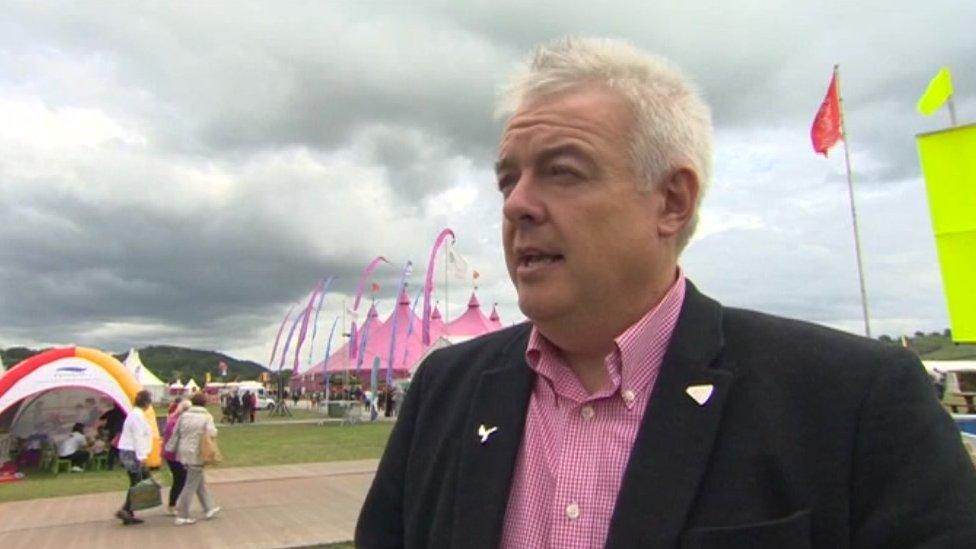
- Published12 October 2016
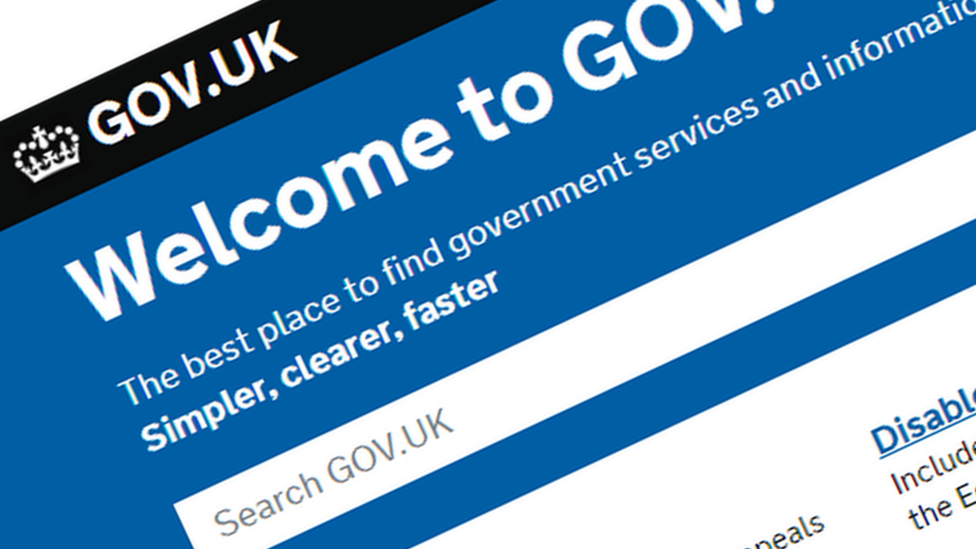
- Published24 May 2016
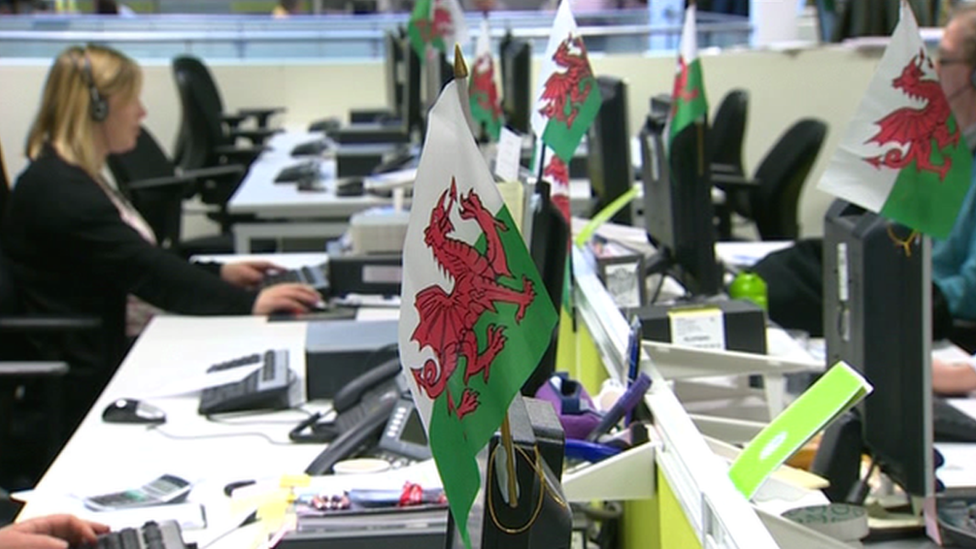
- Published4 October 2016
